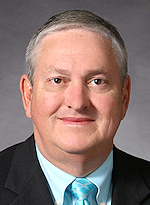By Jim DeBeaugrine
•
March 31, 2025
Last week marked the beginning of the budget process in the Florida Legislature during the fourth week of the annual nine-week session. Chair recommendations from various budget subcommittees were released over several days and served as the basis for the House and Senate budgets, which were printed on Friday. In the area of intellectual and developmental disabilities, there are notable differences between the House and Senate budgets. The House allocates $61.4 million for the waiting list, split between the traditional iBudget and the new managed care pilot, while the Senate does not provide any waiting list funding. The Senate allocates $50 million for Direct Support Professional recruitment and retention, an issue the House does not address. Additionally, the Senate budget proposes replacing the iConnect system, a client data management system, whereas the House budget requires a plan to fix the system. A high-level overview of each chamber's proposals is below for those interested. Each chamber will take up their budget bills in committee on Wednesday, where amendments can be considered. Typically, the House sees very few amendments proposed and none adopted, while the Senate is likely to consider and adopt dozens of amendments. Once the budgets pass out of committee, they will be considered by the full chambers, presenting another opportunity for amendments. Historically, the Senate adopts multiple amendments, while the House adopts none. After each chamber passes a budget, leadership will appoint a conference committee to reconcile the differences between the two bills. The conference process concludes with a conference report, which is considered by each chamber and is not subject to amendment. Once passed by both chambers, the bill is presented to the Governor, who has line-item veto authority. This unique power allows the Governor to veto specific spending items while approving the overall budget. After the budget is signed and vetoes are identified, the Governor’s Office of Policy and Budget begins establishing each agency’s operating budget. Any modifications to operating budgets are subject to Legislative review and, in some cases, approval by a joint Legislative committee composed of members from both chambers. House and Senate budget proposals overview Waiting list The House provides $62.4 million equally provided between the iBudget waiver and the I/DD managed care pilot funded in the Agency for Health Care Administration. The additional funding for the pilot project which is estimated to serve 547 additional individuals, is contingent on passage of HB 1103 or similar legislation that expands the pilot to a statewide program. The Senate does not provide funding for the waiting list but authorizes the Agency for Persons with Disabilities to enroll individuals in crisis into the iBudget Waiver from existing funding. Provider rate increases Both chambers provide $9.1 million for rate increases for Vocational Rehabilitation providers. The Senate provides $50 million from prior year unspent funds in the iBudget Waiver for recruitment and retention incentives for Direct Support Professionals. The Senate provides $1.3 million to increase rates paid for state funded services through the Individual and Family Supports category. iBudget The Senate provides $2 million to engage iLab (an IT consulting company which recently conducted the iConnect evaluation) to develop business, functional and technical requirements for a system to replace iConnect. The language also requires APD to develop procurement documents for the replacement system. The House provides $1.5 million of non-recurring funds and requires the agency to develop a plan by September 1, 2025 to make systems improvements to include enhanced interface capability with external provider systems. Dental services for individuals with intellectual and developmental disabilities Both chambers make significant reductions to funding for dental services previously provided through a contract with the Arc of Florida due to the funds mostly remaining unspent for the last several years. The House reduces funding by $6 million which leaves $5.5 million available for services. The Senate reduces funding by $7.9 million which leaves $3.6 million. Institutions The Senate provides $17.9 million for fixed capital outlay projects in the state-operated institutions. This includes funding for planning for a new forensic facility. The House provides $9.6 million for fixed capital outlay projects in the state-operated institutions. This includes $8.4 million for the new forensic facility which would be located in Marianna on the Sunland campus. The Senate provides $13 million in state funds to replace a shortfall in Federal earnings in the state institutions. In addition, $6.6 million is provided in the current fiscal year budget. The House does not address. Other issues Both chambers fund continuation of the dually diagnosed pilot program in Leon, Broward, Orange, and Hillsborough Counties but from different sources. The House provides $6.5 million from non-recurring funds which is the current funding level for the project while the Senate reappropriates funding that is expected to remain unspent during the current fiscal year. The House reduces the waiver budget by roughly $1.3 billion by eliminating what is called “double budgeting” of Federal funds earned by the Agency for Health Care Administration. While this results in a dramatic decrease for both the waiver and in APD’s total budget, this will not result in reduced services or provider payments. The House eliminates 355.5 positions and $21 million from the APD budget which are associated with positions that have been vacant for more than 90 days. The House provides $8.9 million for various local appropriations projects while the Senate provides $8.5 million. Both chambers reappropriate funding to competitively procure an automated incident management system. Both chambers provide for reappropriation of any unspent funding for the iBudget waiver.



